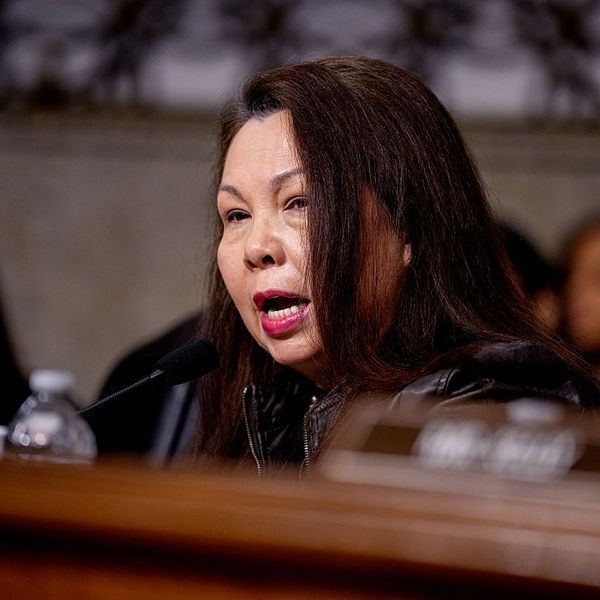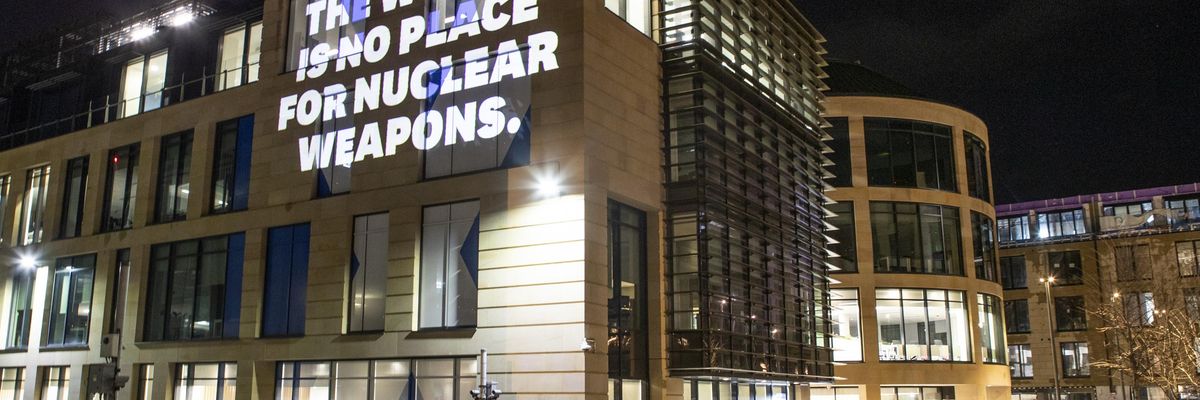Vladimir Putin's missile rattling has reawakened people's concern about nuclear weapons even as it exposes the lack of true understanding of the nuclear threat. An Associated Press poll found 75% of people in the U.S. are concerned or very concerned about a nuclear attack. What are we worried about?
None of the nuclear-armed states have indicated they will attend the Vienna meeting. That might not be true if the media broke the silence and reported on the promise of the TPNW.
Are we suddenly interested in the nuances of the policy of deterrence or U.S./NATO obligations to umbrella states to mount a military defense? Are we concerned about the mind-boggling cost of the modernization of U.S. nuclear programs or whether we should maintain the nuclear triad?
No, we are worrying about whether a nuclear exchange will kill us or the people we love and ruin the world we live in.
In other words, we are worrying about what really matters--the human cost of nuclear weapons. For decades, the official conversations about nuclear weapons have focused on political and military uses of nuclear weapons. The nuclear weapons "establishment" ruled talk about the actual human costs out of bounds, unspeakable, along with talk about nuclear disarmament.
Fifteen years ago, though, an effort began in Australia that spread around the globe, bringing civil society and governments together to work for a Treaty on the Prohibition of Nuclear Weapons. In 2017, that Treaty was adopted by 122 nation-states at the United Nations, and the International Campaign to Abolish Nuclear Weapons (ICAN) won the Nobel Peace Prize. On January 22, 2021, the Treaty entered into force.
The TPNW, in addition to its explicit prohibitions against nuclear weapons and its obligations to care for victims of the use and testing of weapons, made an implicit demand: all serious conversations about nuclear weapons going forward must include the human and environmental consequences of these weapons.
The refusal of the nuclear weapons establishment to consider the human and ecological cost of nuclear weapons has always been intellectually dishonest, but also necessary. Even a cursory consideration makes it immediately clear that there is no conceivable defense for these weapons that, if used, will destroy everyone on all sides.
This is the bottom line: What people care about--whether these weapons will destroy them, their loved ones, and the planet itself--is at the very heart of the Treaty on the Prohibition of Nuclear Weapons. It is the first conversation we should be having in this moment when the nuclear threat is back on the table. It should be the frame for every media interview with policy or military "experts" on the nuclear threat.
It is time to break the silence, to tell the whole truth about nuclear weapons. There is a path out of the global peril that is, at this moment, being acutely felt by people around the world. The next step happens June 21-23, in Vienna, at the First Meeting of States Parties to the Treaty. The human and environmental costs of nuclear weapons will be center stage at the historic meeting.
None of the nuclear-armed states have indicated they will attend the Vienna meeting. That might not be true if the media broke the silence and reported on the promise of the TPNW. An informed public might demand our leaders pursue the only path that promises true safety and security for our children and their children.
In her Nobel acceptance speech, ICAN's Beatrice Fihn said, "Either we end nuclear weapons, or they will end us. One of these things will be true." Vladimir Putin has validated Ms. Fihn with his invocation of nuclear terror. At the moment this is being written, we still have time to choose life over death. Even if Putin puts his missiles away this time, the threat will not evaporate.
We have to eliminate nuclear weapons the day before the first missile is launched. The day after will be, horrifically beyond imagination, too late. If we feel the reality of the nuclear threat, we must act to protect our children and the future now. The path to a world free of nuclear weapons is long and will take time to travel.
US Presidents have declared that the United States has a special obligation to lead the world toward nuclear disarmament. It's time to meet that obligation, time to step out and lead. Sending observers to the First Meeting of States Parties would set an example for all nuclear-armed states. There, the U.S. "leaders" will meet hundreds of delegates from nations who are ahead of us on the road to abolition.



